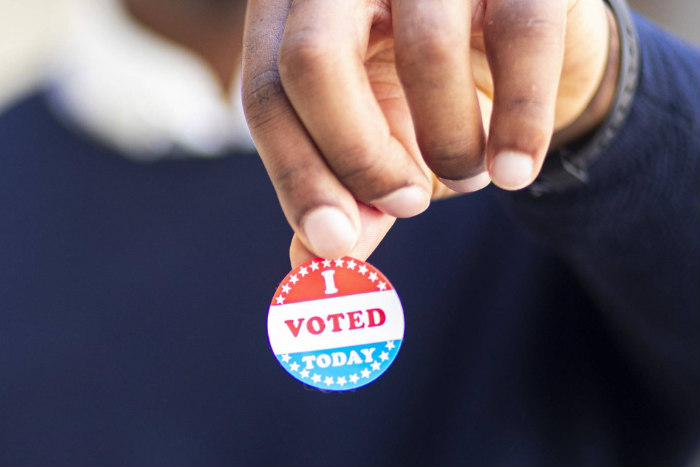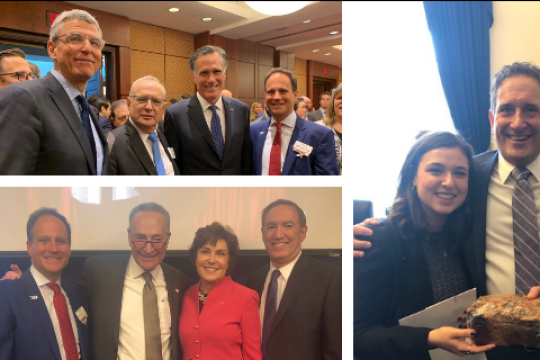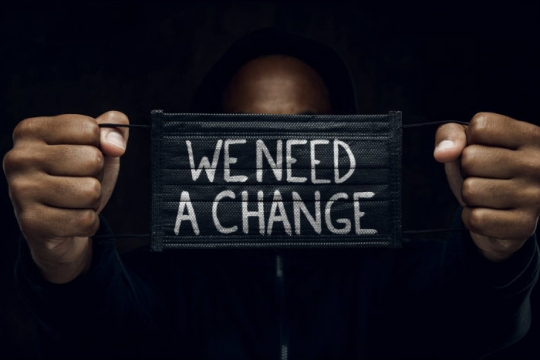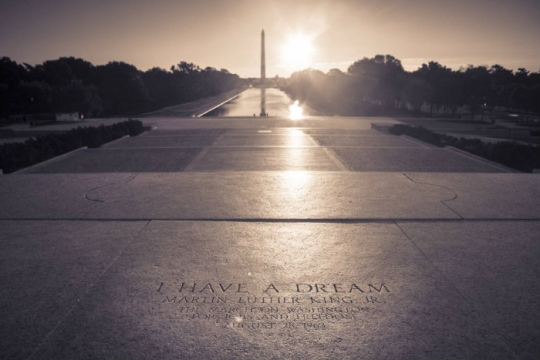
We started from a simple premise: democracy is strongest when everyone participates.
More than six months later, Every Voice, Every Vote: The Reform Movement's Civic Engagement Campaign has reached more than 725,000 voters – and is still ongoing through the end of Georgia’s Senate run-off elections on January 5, 2021. We’re especially proud of the outreach to low-propensity voters in communities of Color: people who haven’t always voted in the past but were likely to do so with some extra encouragement. Indeed, democracy is strongest when everyone participates.
What does participation look like? It looks like Colorado, where, through phone banking, Reform Jewish callers made nearly 500 calls and sent 111,538 texts urging Colorado voters to vote no on Prop 115, which would have banned abortion after 22 weeks, with narrow exceptions. The proposition was defeated, thanks in part to the work of our activists and leaders like Sue and Rabbi Joe Black of Denver’s Temple Emanuel, who shared their personal story and opposition to the ballot measure.
Participation looks like Missouri, where Reform Jewish activists made 2,114 calls for the “Yes on 2” campaign to expand Medicaid, winning with 53.3 percent of the vote.
Participation looks like Oklahoma, where we also did outreach to expand Medicaid, winning 50.49 percent to 49.51 percent.
Participation looks like California, where we successfully mobilized around ballot measures to bring the state closer to an end to felony disenfranchisement of more than 50,000 citizens (Prop 17) and to stop a rollback of criminal justice reforms (Prop 20).
Participation also looks like the record-breaking turnout in this election overall. By the Sunday evening before Election Day, more than 93 million voters had cast their ballots, two-thirds of 2016’s total voting population. Early indications are that more Americans voted in this election than in any in the last century.
We also know that voter participation is necessary, but not enough by itself. Now that the votes have been cast, we turn to the work ahead: making our nation more just, especially for members of communities that are historically vulnerable and oppressed and remain so.
Americans of Color continue to experience inequities in virtually every aspect of life, from higher rates of pre-term birth to higher rates of premature death. In between, African Americans and People of Color generally experience inequities in the classroom, in the workforce, in health care, and in the criminal justice system – with poorer outcomes than their white counterparts in each of those areas and others.
Women continue to earn, on average, 82 cents for every dollar earned by their male counterparts.
LGBTQ+ individuals are once again worried about their right to marry the person they love and about seeing their rights circumscribed in other ways by a new supermajority of conservative Supreme Court Justices.
Hundreds of refugee and asylum-seeking parents have spent months searching in vain for the children taken from them by the American government, and members of immigrant communities in general continue to live in fear of ICE, family separation, and deportation.
Nearly 55 million Americans with pre-existing conditions have health coverage today because of the ACA but worry about losing it when the Supreme Court rules on the law’s constitutionality later this year.
The climate is unequivocally warming due to human activity, yet the U.S. has just pulled out of the Paris Climate Accord.
On these and so many other issues of justice, we are looking to the new Congress and the White House administration to act in the best interests of the nation – and we will hold them accountable.
Democracy doesn’t happen every four years at the ballot box; democracy needs to be affirmed daily by each of us. That happens when we commit to engaging with one another, rather than tuning each other out. It happens when we invest in communal institutions – including our synagogues – as places where we come together in pursuit of a more perfect Union. It happens when, like Hillel and Shammai, we disagree “for the sake of heaven” rather than to tear one another apart.
We can put these principles into action today, because the 2020 elections aren’t over: On January 5, 2021, Georgia will have two runoffs to decide the winners of the TWO U.S. senate races. You can join Every Voice, Every Vote: The Georgia Edition by signing up and participating in our phone banking and postcard efforts.
There is so much work to be done. Let’s recommit to doing it, together.
Related Posts

RAC Legislative Priorities for the 117th Congress

Justice, Justice Shall We Pursue: Resources for Action after the Capitol Insurrection


